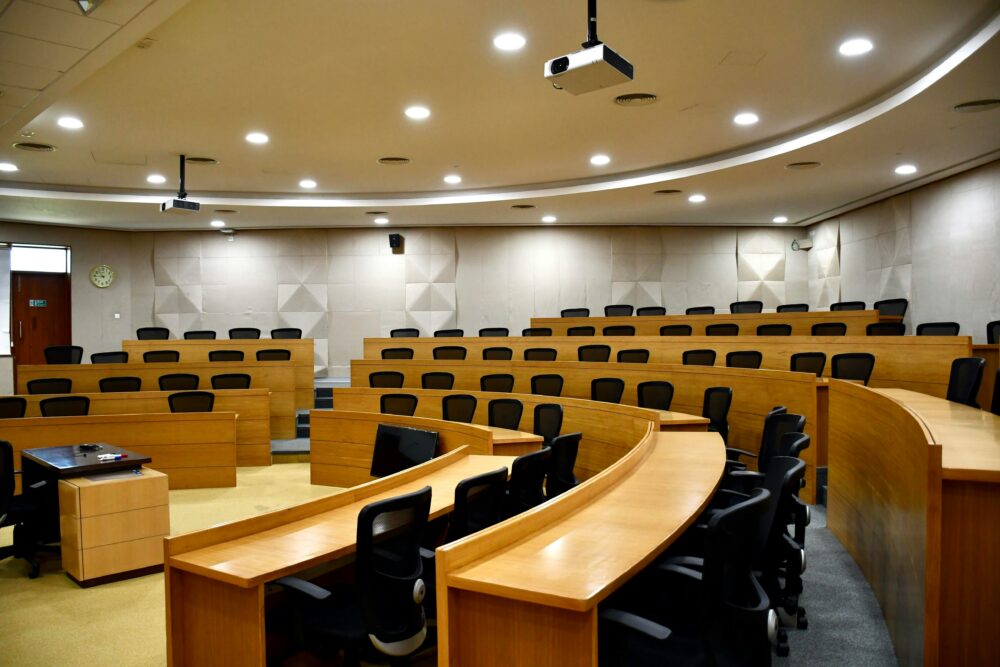In civil disputes, jurisdiction is determined based on the type of matter, level of trial court, and, in some cases, the plaintiff’s choice. The law may empower the plaintiff with the right to choose the court to resolve the dispute under specific circumstances. One such circumstance is when the plaintiff can request the court where the organization is headquartered or where it has a branch to resolve disputes arising from the operations of that branch.
1. Provisions regarding the court’s jurisdiction based on the plaintiff’s choice in cases of disputes arising from the operations of the organization’s branch
Under Article 84 of Civil Code 2015, a branch is defined as a dependent unit of a legal entity, not as a separate legal entity, and is responsible for performing all or part of the functions of the legal entity. Therefore, the branch cannot engage in civil transactions independently but only on behalf of the legal entity. As a result, the legal entity will bear the civil rights and obligations arising from civil transactions established and performed by the branch.
In disputes related to branches, the Court does not identify the plaintiff or defendant as the branch but rather as the legal entity with the branch.1 Accordingly, when initiating a lawsuit, the plaintiff must first adhere to the provisions of Point a, Clause 1, Article 39 of Civil Procedure Code 2015, which determine the jurisdiction of the Court based on the territory where the defendant is located. However, if a dispute arises from the operations of the branch, Civil Procedure Code 2015 grants the plaintiff the right to choose to file the lawsuit at the Court where the organization has the branch.
Specifically, Point b, Clause 1, Article 40 of Civil Procedure Code 2015 stipulates that if a dispute arises from the operations of an organization’s branch, the plaintiff can request the Court where the organization is headquartered or where the organization’s branch is located to resolve the dispute. Therefore, in such cases, the plaintiff can directly sue the defendant at the Court where the defendant’s branch is located to request dispute resolution, without needing to sue where the defendant is headquartered.
2. Practical implementation
In practice, determining whether a dispute arises from the operations of the organization’s branch for the purpose of determining the Court’s jurisdiction can involve various perspectives, not only from the disputing parties but also from the dispute resolution authorities.
According to the First Instance Business and Commercial Judgment No. 17/2022/KDTM-ST dated September 15, 2022, from the People’s Court of P City, Gia Lai Province, the plaintiff filed a lawsuit against the defendant, Central Power Corporation (headquartered in HC District, Da Nang City), and its branch, Gia L Power Company (headquartered in P City, Gia Lai Province). The plaintiff sought the performance of payment obligations under electricity purchase contracts signed with Central Power Corporation, represented by its branch, Gia L Power Company. Consequently, the plaintiff chose to initiate the lawsuit at the People’s Court of P City, Gia Lai Province, and the case was settled there. However, according to Business and Commercial Judgment No. 05/2023/KDTM-PT dated March 17, 2023, from the People’s Court of Gia Lai Province, the Court of Appeal determined that the dispute over the electricity purchase contract, as presented in the plaintiff’s lawsuit, did not arise from the operations of Central Power Corporation’s branch. Therefore, it was not covered by the provisions of Point b, Clause 1, Article 40 of the Civil Procedure Code 2015. As a result, the People’s Court of P City did not have the authority to accept and resolve the case.2
Specifically, according to Vietnam Electricity’s electricity business process, Central Power Corporation is a subsidiary authorized to sign and implement Sales and Purchase Agreements for rooftop solar power systems. Central Power Corporation also has the right to delegate this authority to other individuals and organizations in a hierarchical manner. In this context, Central Power Corporation authorized the Director of Gia L Power Company to sign and implement rooftop solar power Sales and Purchase Agreements with the plaintiff under Authorization Document No. 4354/UQ-EVNCPC.
However, the Court of Appeal determined that Central Power Corporation had authorized an individual (the Director of Gia L Power Company) rather than the organization itself (Gia L Power Company) to act on its behalf. Despite the contract bearing the stamp of Gia L Power Company and stating “Central Power Corporation; address…Gia L Power Company; address… represented by Mr. Van Dinh Hau, Director of Gia L Power Company” in its initial part, the Court considered Party B’s authority to be based on Re-authorization Document No. 4354/UQ-EVNCPC dated May 21, 2019, from Central Power Corporation. The use of Gia L Power Company’s seal for the Director’s signature was deemed compliant with enterprise law regulations that determine the person holding the title and position within the enterprise.
Based on this interpretation, the Court of Appeal concluded that the transactions conducted by the Director of Gia L Power Company on behalf of Central Power Corporation could not be considered operations of Gia L Power Company. Despite the plaintiff’s argument that the dispute arose from the operations of Gia L Power Company, the branch of Central Power Corporation, and the plaintiff’s invoicing for Gia L Power Company during the payment process, the Court determined that the dispute over the electricity purchase contract did not arise from the operations of Central Power Corporation’s branch.
In contrast to the Court of Appeal’s viewpoint, the High People’s Court in Da Nang City, when adjudicating the aforementioned case by cassation, determined that the dispute did indeed arise from the operations of Central Power Corporation’s branch, Gia L Power Company. Specifically, the Judges Committee of the High People’s Court in Da Nang stated that the act of signing the contract at Gia L Power Company constitutes an operation of the branch currently in dispute. The High People’s Court in Da Nang disagreed with the Court of Appeal’s interpretation of Authorization Document No. 4354/UQ-EVNCPC dated May 21, 2019. While the Court of Appeal held that Central Power Corporation authorized the individual, not the branch, to act on its behalf in signing the contract, thereby concluding that the dispute over the electricity purchase contract did not arise from the branch’s operations, the High People’s Court in Da Nang deemed this interpretation incorrect. Consequently, the Cassation Decision No. 12/2023/KDTM-GĐT dated September 19, 2023, from the High People’s Court in Da Nang City annulled both the Appellate Business and Commercial Judgment No. 05/2023/KDTM-PT dated March 17, 2023, of the People’s Court of Gia Lai Province and the First Instance Business and Commercial Judgment No. 17/2022/KDTM-ST dated September 15, 2022, of the People’s Court of P City, Gia Lai Province.3
The aforementioned case illustrates that differences in viewpoints can easily arise among dispute resolution agencies when determining disputes stemming from branch operations. Despite Clause 5, Article 84 of the Civil Code 2015 stipulating that transactions established and performed by a branch are binding on the legal entity, in practice, legal entities typically authorize branches and branch heads to carry out specific tasks within defined scopes and time limits. Although the Cassation decision did not provide a detailed argument as to why the contract signing at Gia L Power Company should be considered the operation of the branch, it is evident that throughout the process of signing, implementing, and executing the electricity Sales and Purchase Agreement—including payment and invoicing—Gia L Power Company directly engaged with the plaintiff. Even when the dispute arose, Gia L Power Company was the unit actively involved in resolving the dispute with the plaintiff prior to the plaintiff initiating legal action. Therefore, it is reasonable to conclude that this dispute arose from the operations of Gia L Power Company, the branch of Central Power Corporation.
In summary, when the law grants the plaintiff the right to choose the court to resolve disputes arising from branch operations, it implies that the plaintiff has the discretion to either request or not request the Court where the organization has a branch to handle the case. However, when opting for the Court where the organization has the branch, the plaintiff must not only exercise caution regarding the Court’s authority to accept and resolve the case but also proactively determine whether the dispute genuinely originated from the branch’s operations. This ensures that the plaintiff’s choice aligns with legal requirements, thereby avoiding situations where court judgments or decisions may be overturned.
[1] Point a, Clause 5, Section I of Circular No. 29/HD-VKSTC dated September 25, 2020 of the Supreme People’s Procuracy providing guidance on certain aspects related to the supervision and resolution of commercial business cases.
[2] https://congbobanan.toaan.gov.vn/5ta1199844t1cvn/Co%CC%82ng_ty_Van_P_Thanh_D.pdf
[3] https://congbobanan.toaan.gov.vn/5ta1350564t1cvn/QD_GDT_KDTM_so__10_Cong_ty_san_xuat_va_thuong_mai_T_Cong_ty_Nang_Luong.pdf
Disclaimers:
This article is for general information purposes only and is not intended to provide any legal advice for any particular case. The legal provisions referenced in the content are in effect at the time of publication but may have expired at the time you read the content. We therefore advise that you always consult a professional consultant before applying any content.
For issues related to the content or intellectual property rights of the article, please email cs@apolatlegal.vn.
Apolat Legal is a law firm in Vietnam with experience and capacity to provide consulting services related to Dispute Resolution and contact our team of lawyers in Vietnam via email info@apolatlegal.com.





































